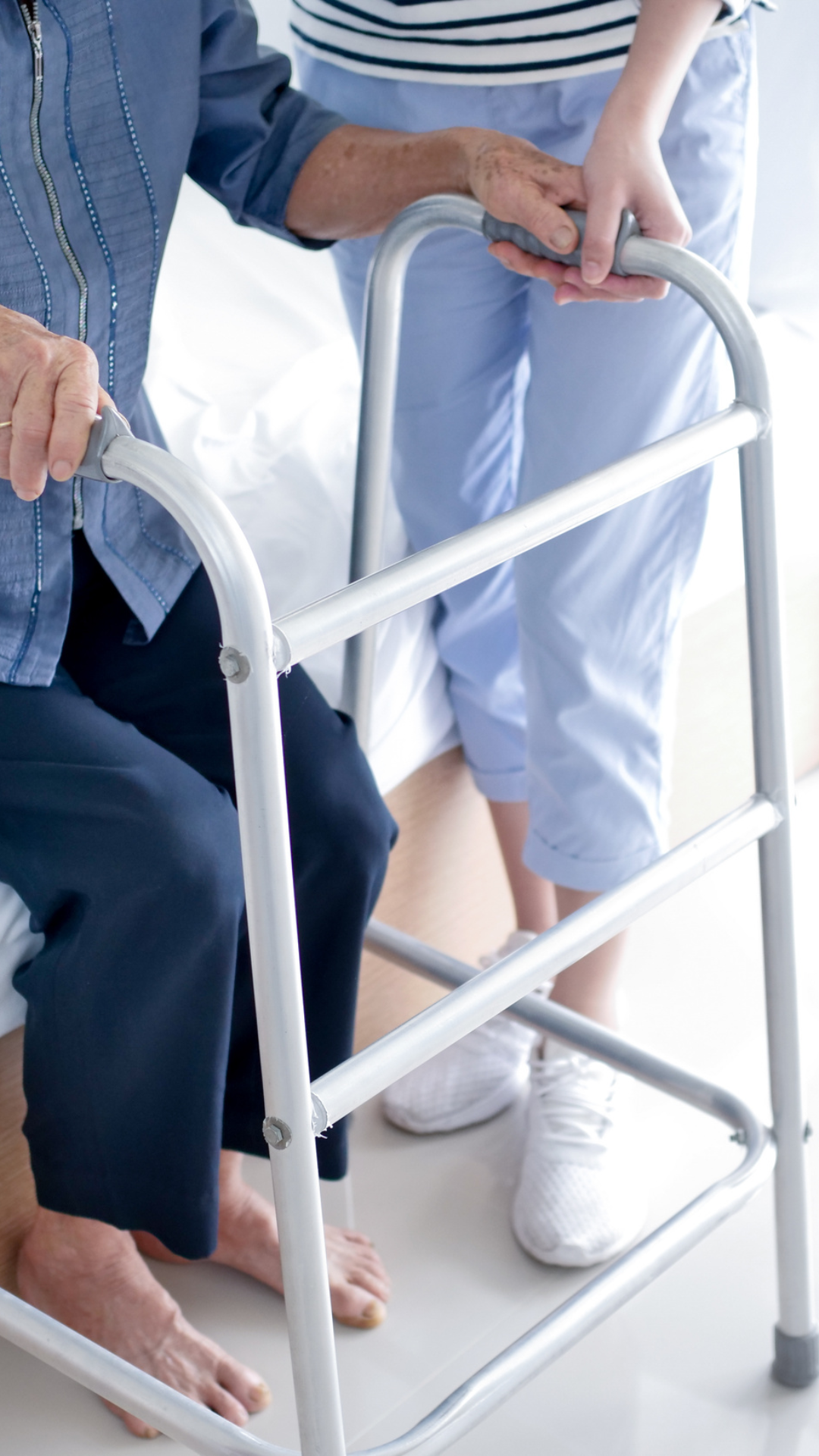
What is Osteoporosis?
Osteoporosis is a condition in which the bones become weak and brittle, increasing the risk of fractures. It is most common in older adults, especially women, but it can affect people of any age. Osteoporosis is often called a “silent disease” because it typically has no symptoms until a fracture occurs. Risk factors for osteoporosis include being female, having a family history of the condition, being thin or having a small frame, and having low levels of estrogen or testosterone.
Osteoporosis increases the risk of fractures. Fractures due to osteoporosis can occur in any bone, but they are most common in the spine, hips, and wrists. These fractures can cause severe pain and disability, and they may lead to a loss of mobility and independence. In severe cases, osteoporotic fractures can result in hospitalization and even death. In addition to the risk of fractures, osteoporosis can also cause a loss of height, a hunched posture, and chronic back pain. These changes in posture and appearance can lead to a decreased quality of life and can also increase the risk of falls and other accidents. Osteoporosis can also increase the risk of other health problems, such as depression and anxiety, due to the impact of the condition on physical function and quality of life.
Treatment for osteoporosis may include medications to increase bone density and decrease the risk of fractures, as well as lifestyle changes such as exercising regularly and eating a healthy diet. In addition to helping to reduce the risk of fractures, these treatments can also help to improve balance and coordination, leading to increased mobility and independence. By addressing the underlying cause of osteoporosis and taking steps to prevent fractures and improve bone health, individuals with the condition can enjoy a better quality of life.
Diabetes & Thyroid Metabolic Clinic focus is in osteoporosis care and management in El Paso, Texas, and we are committed to providing personalized care and culture-sensitive treatment to all of our patients.
Who is at risk for Osteoporosis?
There are several factors that can increase a person’s risk of developing osteoporosis. These include:
Being female: Women are at higher risk of osteoporosis than men, especially after menopause.
Advanced age: The risk of osteoporosis increases with age, and it is more common in older adults.
Having a family history of osteoporosis: If a family member has had the condition, you may be more likely to develop it as well.
Being thin or having a small frame: People who are thin or have a small frame are at higher risk of osteoporosis because they have less bone mass to lose.
Having low levels of estrogen or testosterone: Hormones such as estrogen and testosterone help to maintain strong bones, so low levels of these hormones can increase the risk of osteoporosis.
Having certain medical conditions or taking certain medications: Certain medical conditions, such as celiac disease or rheumatoid arthritis, and certain medications, such as corticosteroids, can increase the risk of osteoporosis.
Not getting enough calcium and vitamin D: These nutrients are essential for maintaining strong bones, so a lack of them can increase the risk of osteoporosis.
Not exercising regularly: Exercise helps to maintain strong bones, so a sedentary lifestyle can increase the risk of osteoporosis.






Osteoporosis Care and Management
Our clinic is dedicated to providing the best care possible to patients with osteoporosis. We understand that each patient is unique, with their own set of circumstances and challenges, and we strive to provide individualized care that takes these factors into account.
We take a holistic approach to treating osteoporosis, focusing not only on medical interventions, such as medications, but also on lifestyle changes that can help improve overall health and well-being. This may include recommendations for diet and exercise, as well as support for managing stress and other factors that can impact bone health.
We are also committed to providing culturally sensitive care that takes into account the diverse backgrounds of our patients. We understand that different cultures may have different beliefs and practices when it comes to health and wellness, and we strive to provide care that is respectful of these differences. This may include providing education and resources in multiple languages, and working with patients to understand their cultural beliefs and needs.

There are several medical interventions that can be used to treat osteoporosis. These include:
Medications that increase bone density: These medications, known as bisphosphonates, work by slowing down the rate at which bone is broken down, allowing new bone to be formed. Examples of bisphosphonates include alendronate (Fosamax) and risedronate (Actonel).
Medications that decrease the risk of fractures: These medications, known as bone formation agents, help to increase bone density and decrease the risk of fractures. Examples of bone formation agents include teriparatide (Forteo) and abaloparatide (Tymlos).
Medications that decrease the risk of falls: Falls are a common cause of fractures in people with osteoporosis, so medications that help to decrease the risk of falls can be helpful in preventing fractures. Examples of these medications include vitamin D and calcium supplements, as well as medications that improve balance and coordination.
Hormone therapy: In women who have gone through menopause, low levels of estrogen can contribute to osteoporosis. Hormone therapy, which involves replacing estrogen, can help to prevent bone loss and decrease the risk of fractures.
Surgery: In severe cases of osteoporosis, surgery may be necessary to repair fractures or to stabilize bones. This may include procedures such as metal rods or screws to hold bones in place, or bone grafts to replace damaged bone.


